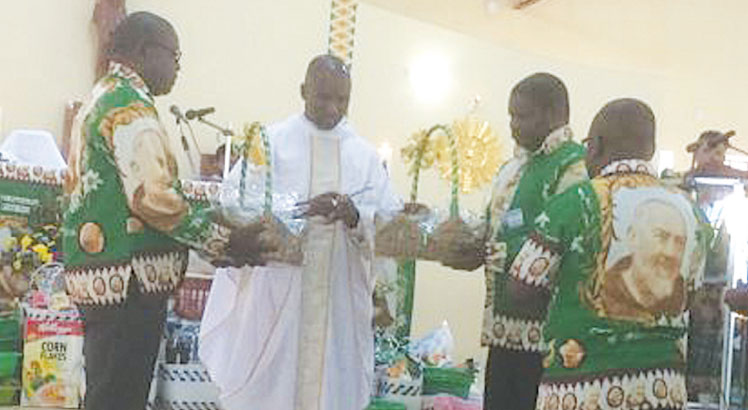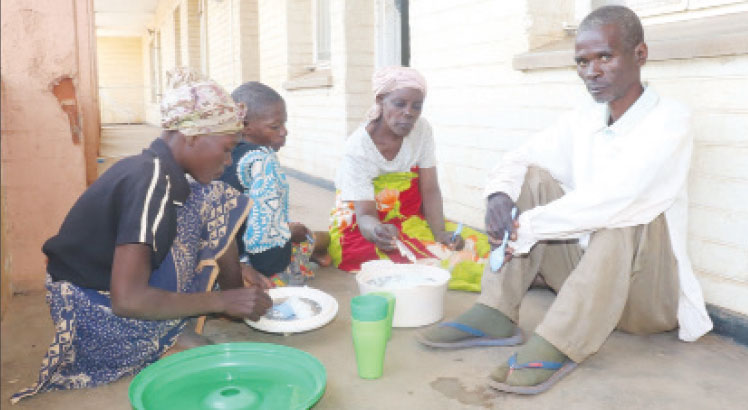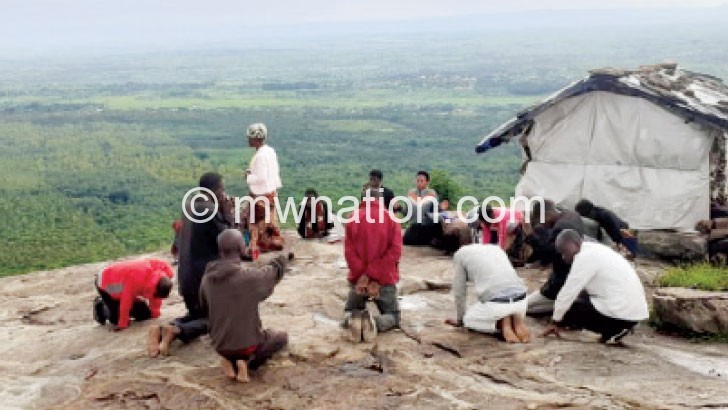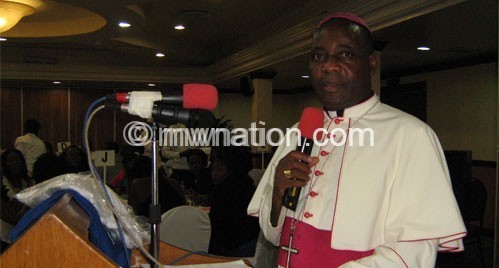There is still future to hold on to
Why this anxious feeling about the future?
People can have anxiety because we have insufficient knowledge about the future and we seem to have limited resources for managing our future.
The nation is challenged by the effects of diseases and politics that even leave the scientific and civil ‘worlds’ puzzled, wondering how to successfully manage an already-challenged health care and government system.
We are still overwhelmed with HIV and Aids pandemic and children dying because of malaria and many other diseases even before they celebrate their fifth birthdays. Now we have the coronavirus disease 2019 (Covid-19), and as if that is not enough the political sphere seems to have its own challenges, too.
But when we have faith in God, we will not worry much about what the future holds for, like Job said, we know our Redeemer lives.
Any hope?
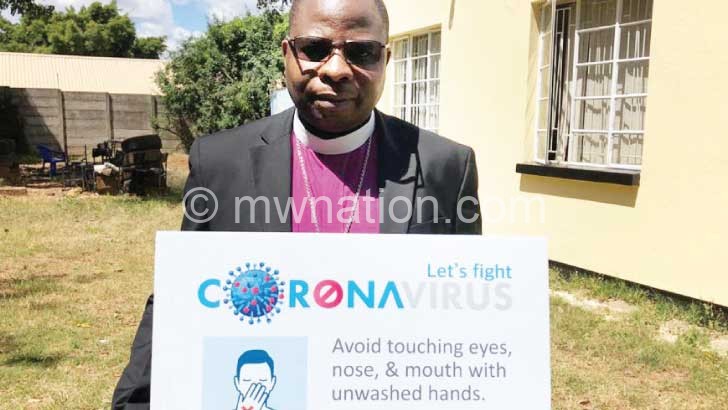
God promised us a great and brighter future, and although it may be too obvious to state, but in order to avoid misunderstanding, it is necessary to emphasise that the future is characterised by being unknown and unknowable, yet we all want to pursue living a meaningful life within the normal constraints of earning a living.
Isaiah 65:17-25 gives us the answer as the passage justifies, describes, and critically interprets some concrete answers to the question of what the future holds for us as a family, a church or a society.
Isaiah points to the theological vision of what life can be for the people who have their hope and trust in the Lord God, and the prophet’s traditions are intertwined with memories of the ancient truth and promises of the great future for the people of Israel who were in the bondage of Babylon.
At that time Babylon felt to them like a hopeless place, full of suffering, and devoid of their Hebrew identity. Here we see the three motifs of Isaiah; the motif of the former and latter things, the motif of the glorification of Zion and the motif of the Shalom of the God’s holy mountain.
In this passage, we see God as the Creator in control. He is not one in the far remote place, but the one who is right in front of all the events as they unfold. God alone has the authority to speak new things into being. God alone brought healing and hope for the people in exile and guided them to a future of hope, joy, peace, and harmony.
The Lord God strengthened the devastated people, and memories of the former challenging times faded.
But the nation is devastated?
Our hearts need to be delighted with the promises that all shall be well for God is in control. He reigns on Earth and in Heaven. The picture described in Isaiah, in which violence and fear would be no more, constitutes one of the most beautiful oracles in the Scripture.
When we are in Christ Jesus and have received the joy of salvation, we have a joy and harmony in our hearts, and the fullness of this harmonious joy will come with the second coming of the Son of Man, as God’s people will weep no more with cries of distress, there will be no more premature loss of life, homes will be built and inhabited, vineyards will be planted, and people will enjoy the fruit of their labour.
This is a great promise for the people who lived in great poverty just like as it can also bring joy to us today because God responds to the needs of the people even before they say a Word of prayer.
God is bringing the restoration where there is no more suffering. No longer will there be fights between the weak and the strong. It will be a kingdom where everyone lives in harmony with the other and with creation.
But people are frightened?
It is imperative to be proactive in preventing and preparing for a fight against any pandemic or violence. Nearly all the countries that were facing the challenges of the coronavirus or political violence before us were living so happily and everything was normal.
Learning from them and doing what they did not do at the early stage could have helped, especially that our community is much challenged in many aspects that include a health system so fragile than most of the countries who were on their knees in shutdown before us.
Unfortunately, some people were watering down the need to be proactive saying it was not yet time , yet for the Covid-19 we needed not count much on curative health care but rather on preventive, so a vigilant role in prevention was good for the nation.
Likewise, the political situation can be managed if we all realise that as children of God, we needed to appreciate that we are one, and needed to further follow the principles of natural justice.
What’s the role of the Church in this?
The Church should not stop preaching the news of prevention. We should be doing something for our faithful and the nation at large. We should speak the truth and speak out of love. We should also realise that we can live together regardless of differences in race, religions, and tribe.
We can be good community changers by planting good values of life for the better of our communities.
Let us follow the measures of slowing down the advance of the corona virus and political violence. Let us love and protect one another.
In whatever we do or say, even our way of praying or preaching, we should remember God blessed us with a nation called Malawi to live in.
Let us all join hands in prayers these pandemics should be eradicated and that there be a total healing to all nations. God has a plan for everyone, and the church needs to continue to be the instrument of hope and peace.
Above all, prayer is key to the fight against the Covid-19 and any form of violence that some bad apples may want to perpetrate.


